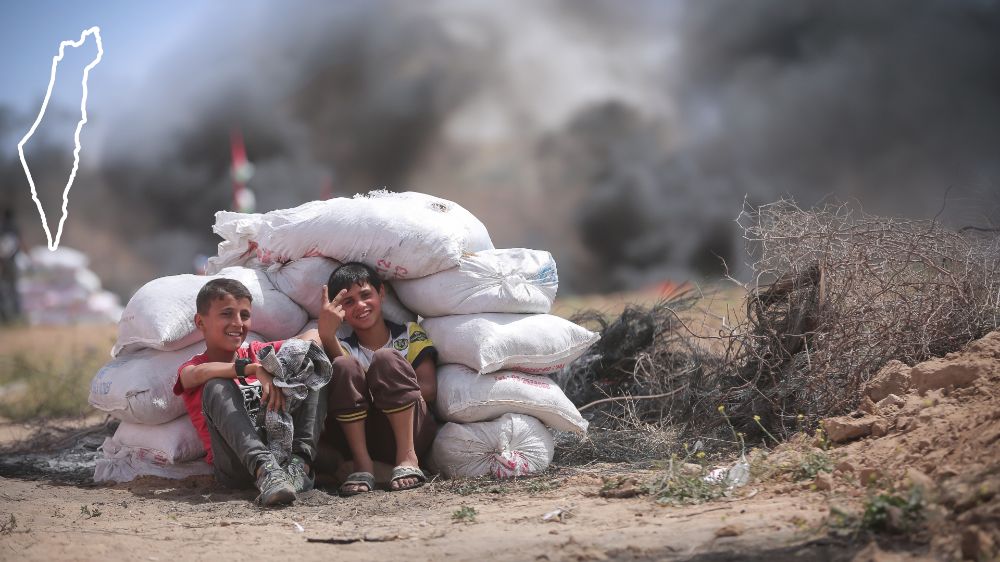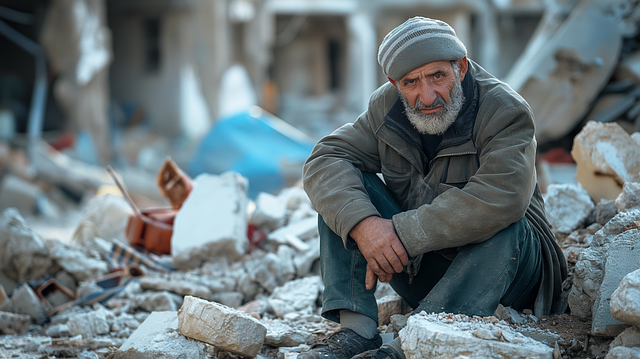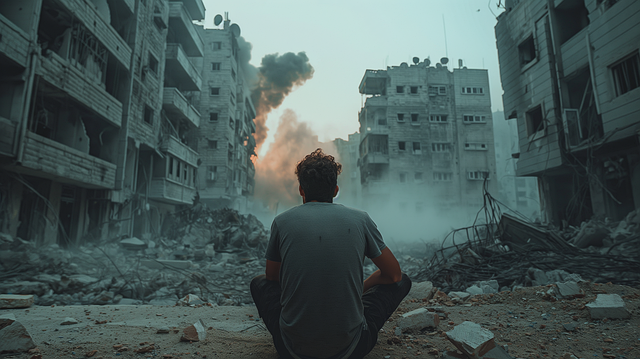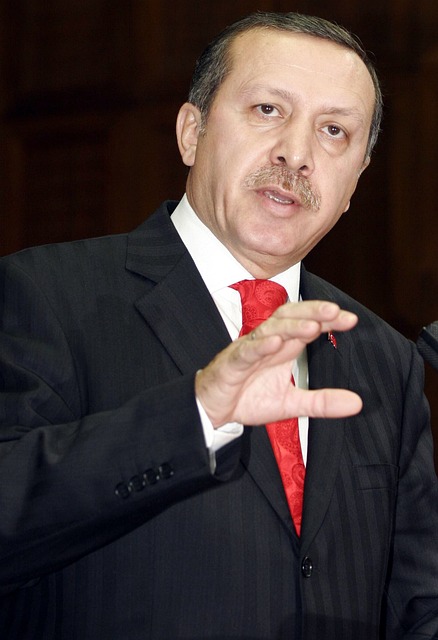Introduction
The dust has finally settled over Gaza, at least for now. And while the guns may have fallen silent, the scars of this war are still fresh, and the uncertainty leaves little hope about the future. Both Palestinians and Israelis have paid a heavy price, which makes us wonder what, if anything, was truly gained.

Al-Aqsa Flood Operation
As the name suggests, the attack on October 7th was in response to Israel’s violations in the Al-Aqsa compound. These violations included daily storming by Jewish settlers, beating Muslim worshipers, and limiting Muslim access to their holy site.
Military and Political Objectives of the War
October 7th wasn't just another date on the calendar. For Hamas, the Operation Al-Aqsa Flood marked the beginning of a military operation aimed to hit Israel where it hurts. The operation that they prepared for very well, and kept a secret for years, had significant military and political objectives that aimed at reshaping the entire geopolitical landscape of the region.
The military operation achieved huge success, even more than Hamas leaders had anticipated. The entire Israeli defences around Gaza fell in hours, and with only 10,000 fighters, they managed to take major cities, reaching Ashkelon.
The aftermath objectives, as outlined by the former leader Al-Sinwar back in 2022, were to free Palestinian captives from Israeli jails and to disrupt the efforts of integrating Israel into the region. Quite ambitious goals for a group that governs one of the most besieged territories in the world.
Israel, of course, wasn't about to take this lying down. Benjamin Netanyahu set out to destroy Hamas, retrieve the hostages by military force, and establish a new governance in Gaza that didn't oppose Israel. On a broader level, Israel aimed to restore its deterrence and rebuild trust with its citizens by eliminating outside threats and making Israel safer.
Assessing The Gains
So, who came out on top? While Hamas ticked all the boxes, the outcome entirely depends on how this deal will hold up. For one, Netanyahu vowed to continue the war soon. Second, Israel has a history of recapturing released captives from previous deals, which may render Hamas's efforts ineffective.
Israel, on the other hand, fell short of its goals. Israeli soldiers didn't march victoriously through the streets of Gaza, rounding up the last scraps of Hamas while heroically extracting their hostages. Even Israel’s swift victory in the North was not the victory Netanyahu hoped it would be, as Hezbollah’s arsenal remains largely intact. Israel’s efforts to isolate Hezbollah by removing Assad didn’t quite work out as expected either. Turkey quickly filled that gap by unexpectedly forging a strategic alliance with their former foe - but more on Turkey later. If Israel can brag about any gains in this war, it is the use of excessive force that may have deterred its enemies from launching attacks in the near future.
But in wars, often the unexpected gains have the biggest impact on the outcome. While Israel expected that Palestinians would rise against Hamas by the end of the war, the events took quite a different turn. The sight of Gaza celebrations glorifying the resistance was a clear indication that Hamas popularity is growing. In fact, Hamas even recruited thousands of new fighters driven mainly by personal grief. Additionally, Hamas gathered large quantities of unexploded munitions that Israel left in Gaza, which could allow them to manufacture better weapons. So, instead of destroying Hamas, Israel has unintentionally strengthened the organization by making it bigger, better equipped, more experienced and more popular.
We reserve the right to resume the war if necessary, with American support
Benjamin Netanyahu, 18.01.2025 (source)
The Costs of War
All these gains came at a heavy price. For Hamas, it was a total destruction of their ruled enclave. For Israel, while the cost in their army losses was the highest in its history, the ruined moral image in the eyes of the world had the worst impact.
Hamas today would probably think a hundred times before they repeat October 7th because this time around, the Israeli response could be far more devastating. Maybe Hamas didn’t expect Israel to go to these lengths of aggression, but now they know what to expect in the next round.

Israeli leaders are also facing the consequences of using excessive force in Gaza. The PM is wanted for the crime of genocide, and IDF soldiers are facing lawsuits and backlash everywhere they go. The Israeli economy is on the brink of collapse, and internal strife is worsening. Netanyahu’s decision to place the war above the safety of hostages has sparked a significant rift in a society that once believed that Jewish lives were the priority in a Jewish state.
By weighing the damages and the gains of this war, we can clearly see that Israel didn’t come out with anything worthy of their 14-month campaign. Whether in terms of announced goals, side victories, or unexpected gains, the costs of war for Israel are almost gone in total vain. With no decisive victories in Lebanon or Gaza, and with Turkish influence taking over Syria, there are no positive changes to mention for Israel.
For Hamas, the stakes were not quite as high from the beginning. The damage they inflicted on Israel through direct combat, diminishing Israel’s global standing or even ruining their opportunity to integrate in the region, was a huge strategic victory, even considering the heavy losses they suffered in lives and infrastructure.
This deal is a milestone in the conflict with the enemy, on the path to achieving our people's goals of liberation and return
Khalil al-Hayya - Hamas Chief Negotiator (source)
Is Israel Safer Now?
Let us not forget the main goal of Israel’s regional conflict, which is to eventually make Israel a safer place. After October 7th, Israelis were faced with events that they had never experienced before, and their sense of security and trust in their army was shaken. Entire communities in the North and South were evacuated, and the center of the country was under the mercy of the Houthis’ advanced rockets and drones. Hundreds of thousands of dual citizens left the country, perhaps for good, and many businesses closed their doors.
Netanyahu’s biggest challenge lies in rebuilding trust with Israeli citizens and removing threats on all fronts. Only that could restore stability within the Israeli society. However, without destroying any of the threats, despite using excessive force and international support, this rift in Israeli society will continue to worsen. Their once-mighty army that defeated all the Arab armies combined finds itself unable to repeat that legacy against smaller and less equipped groups.
Israel may have reached a temporary reality where its opponents took a heavy hit, but there is no guarantee that this will last too long. Especially if there was a sudden shift in the international balance of power, which would encourage these groups to repeat their attacks.
The fact is, Israel is less safe than it was before October 7th. Hamas, Hezbollah, Houthis, and Iraqi militia are still maintaining their military strengths, but now there is an additional threat from Syria’s new leadership.
The Unexpected Winner
It’s fascinating how events can take unexpected turns. Even when powerful nations seem to be in control, things can unfold in ways they never anticipated. By looking at the big picture to evaluate long-term gains, we see only one unexpected winner, which is Turkey. Despite not being directly involved in the conflict, Turkey got out of this conflict with more influence and without losing anything in the process. The removal of Al-Assad caused Turkey to once again reconnect with their Sunni world and remove the Shia barrier that kept them isolated for decades. This strategic gain placed Turkish influence on the border of Israel, Jordan, and Lebanon, which paved the way for new alliances in their favor. With this single move, Turkey outmaneuvered Israel and Russia in one go, without any costs. None of that would have been possible without the ongoing Israeli war in the region.
Gaza War
Breaking news (Tue, Mar 18): Israel violates the cease-fire and launches a surprise attack, killing hundreds of people, mostly women and children.

Photo by Save_Palestine on Pixabay
On Tuesday, the 18th of March, Israeli airplanes launched a series of surprise air strikes, killing hundreds of people, including women, children, Hamas and Jihad operatives, and government officials.
This comes amid Trump's promise to “open the gates of hell” if hostages are not released, while Hamas insists that “phase 2” of the cease-fire agreement was the agreed timeline for the release of all hostages.
But Netenyahu needs this war for personal reasons and not just for the hostages. He promised to change the entire Middle East, and honoring the cease-fire agreement would mean the end of it. In addition, Netanyahu will have no excuses to keep dodging corruption charges and would finally have to answer for the October 7th failure. Not to mention the pressure from the far-right elements in his coalition.
How this plays out is anyone’s guess. But one thing is certain: the world can no longer stomach more images of dead children.
